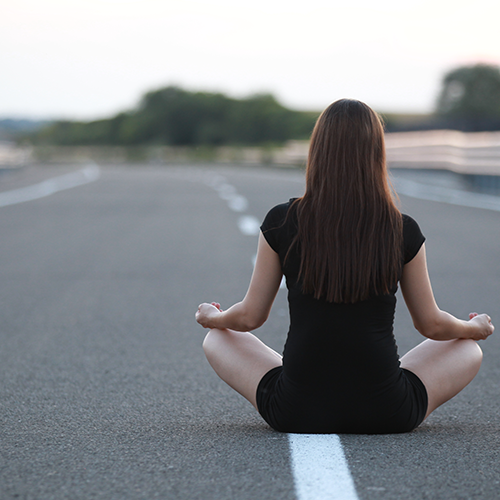If you’re one of the millions of Americans who believes that life doesn’t start until after coffee, you know how caffeine can put your mind and body in overdrive. Like any stimulant, caffeine can in fact make you more productive on the surface, which is what often makes coffee the drink of choice for combating the stresses of everyday life. The more you drink, the more you do, the less things pile up around you, the better you feel. Or so it’s supposed to go.
But this very state of hyperactivity in the mind and body fueled by coffee is often what creates a heightened state of anxiety. Caffeine gets you moving, sure, but it often moves you right past what’s there in front of you in the present. Meditation has a similar basic goal as coffee – to help you face the day – but it goes about it in a completely opposite way.
Chances are you reach for your first cup of coffee in the morning to help wake you up. What you’re really getting is an artificial spike in blood pressure that, over time, can be dangerous to your health. But there’s no denying coffee works, and works quickly, meaning that you probably don’t feel the need to combat your exhaustion from another angle – a more restful night’s sleep. Regular meditation practice, even if done in the morning, can lead to more consistent sleeping patterns and more time spent in deep REM sleep, which will have you out of bed and alert without reaching for a K-cup.
The mid-day coffee break is a staple of the American workday. It’s a chance to get away from thinking for a little bit and reset the mind, or so we believe. In actuality, we spend almost 50% of our days lost in our own thoughts, which itself can be incredibly draining. Add to that the tendency of caffeine to make our minds perk up even more, and those coffee breaks are actually adding stress to our afternoons. Mindful brains are better equipped to let thoughts come and go without fixating on them, which leaves more time for moment to moment living. The focus you gain from meditation is a result of your complete awareness of your surroundings, which caffeine can often obscure.
There is certainly room for a balance of both coffee and meditation in our lives. However, while both have a compounding nature that causes our bodies to crave more over time, a reliance on caffeine can have negative effects on the practice of actually doing meditation. We may find it difficult to relax our bodies due to caffeine’s spiking of our nervous systems, which alters the breathing pattern that’s so critical to meditation. We may also find ourselves lost in judgment as a result, admonishing ourselves for being unable to focus.
In the time it takes you to brew your own cup of coffee or wait in line for your go-to order at the coffee shop, you could be starting your day with a habit that will give you the same jolt of mental energy without the crash or chemical dependence. See what happens when you commit to meditation as your new morning routine.
